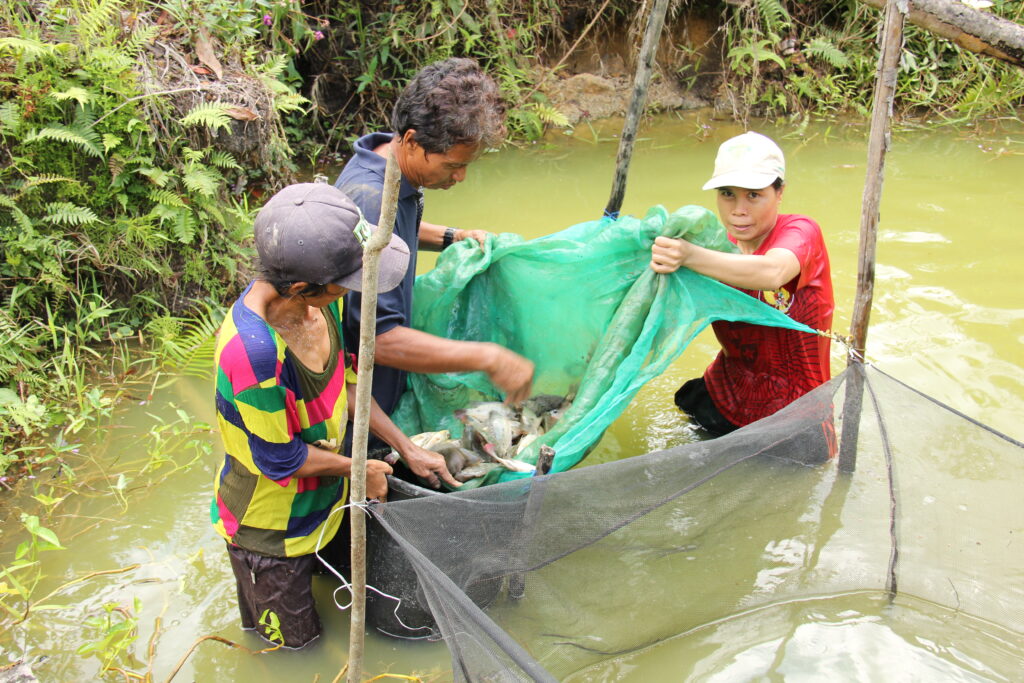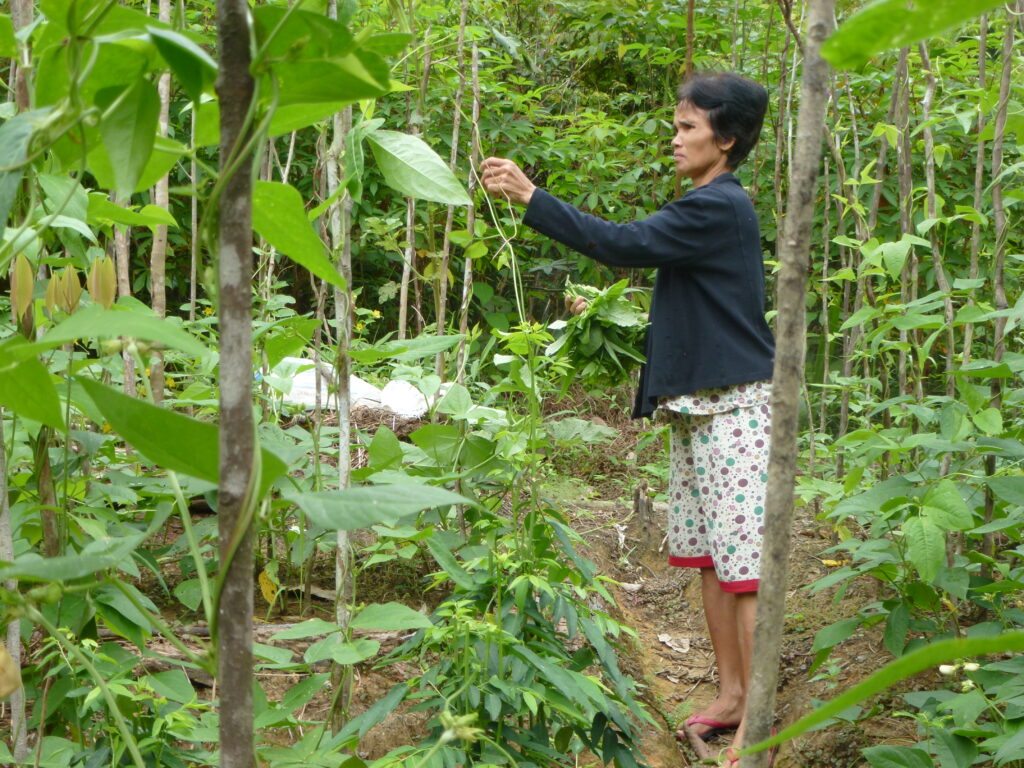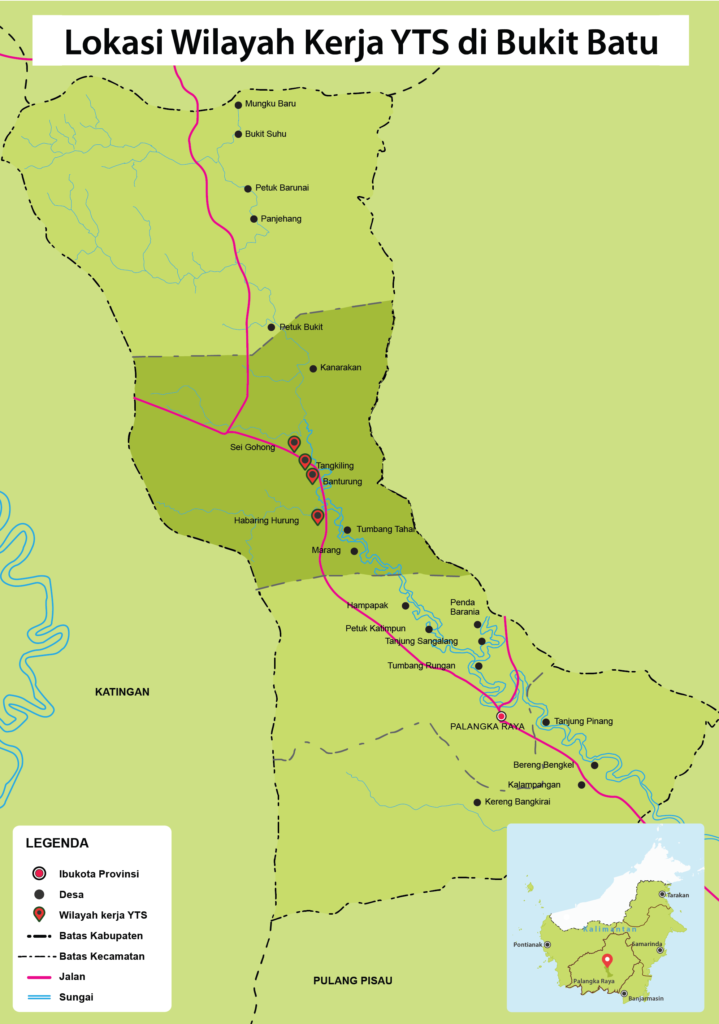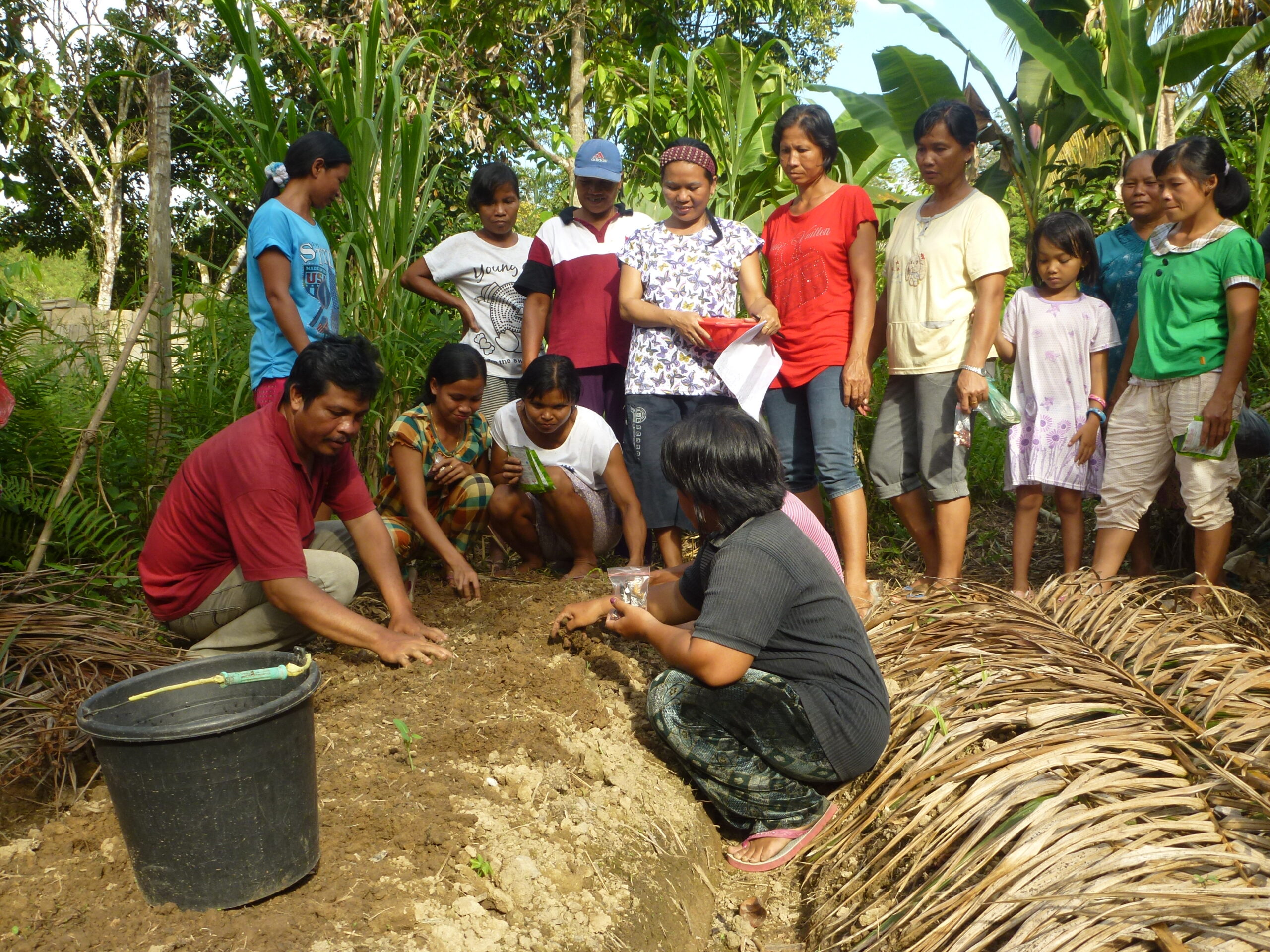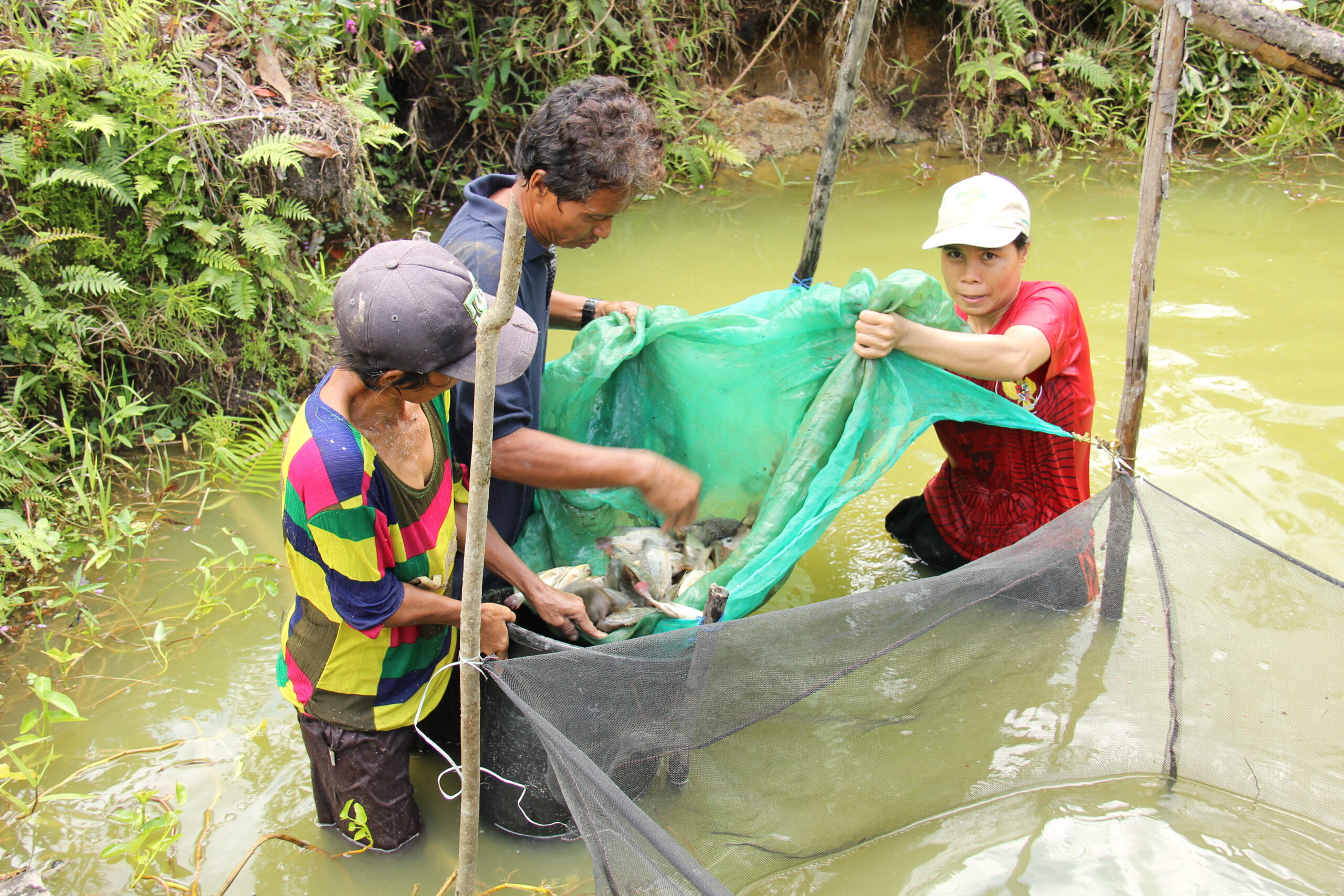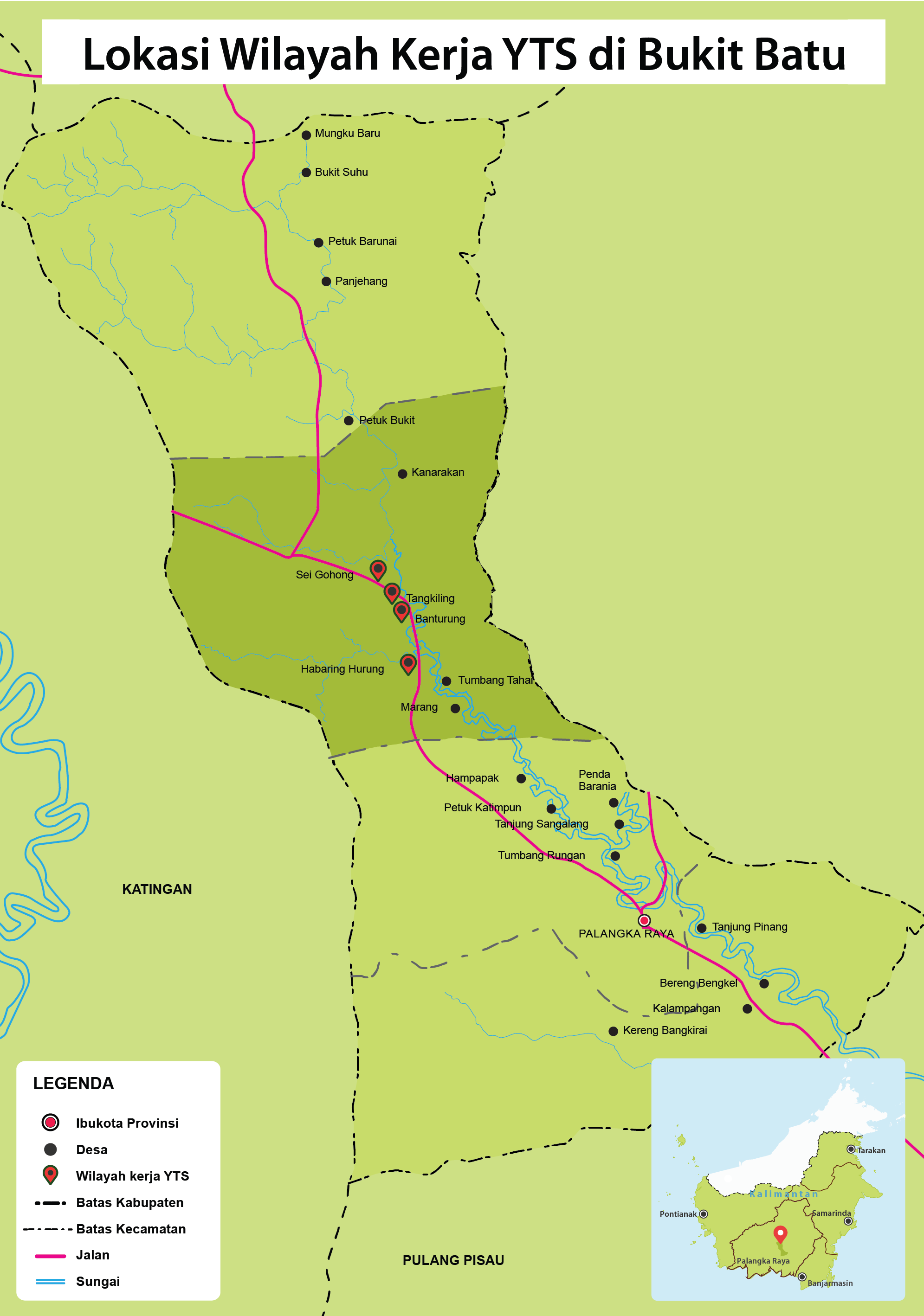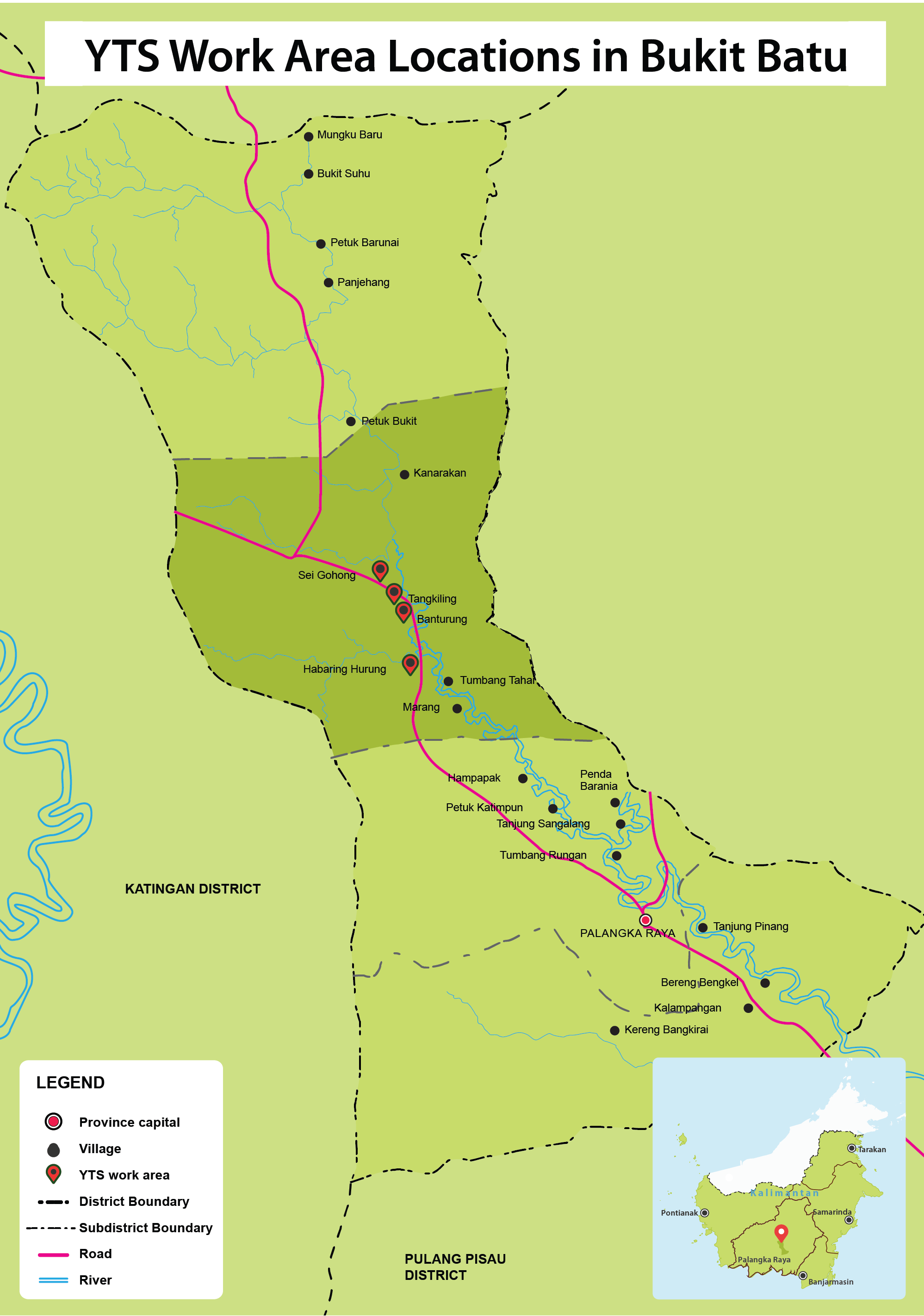Bukit Batu Project
YTS’s program in Bukit Batu, Palangkaraya has now been running for a decade. It started with planning, strengthening governance, and livelihood support to farmer business groups (KUB = Kelompok Usaha Bersama).
Up to 2020, we focused our support on commercial fish farming – breeding, spawning, fish raising, alternative fish feed, rearing, training women’s groups to develop snack products based on fish, and product marketing research and techniques. After that we branched out to support vegetable market gardens: a vital source of food supply in the area. We provided technical support both to improve crop yields and to eliminate chemical inputs, as well as to access the wider market potential.
Starting in 2022, in addition to continuing with the technical support to the fish and vegetable farmers and food product producers, YTS focused on strengthening the capacity of the Forum KUB, the overarching coordinating body for the six community-based KUB Joint Business Groups in Bukit Batu Subdistrict. YTS provided intensive assistance to re-organize the FKUB, with the election of a new management team and working groups, and a series of training activities aimed at enabling the FKUB to provide critical services to the KUBs and their members. Fifteen people joined the management team, the FKUB was legalized, and the team received training on their key functions and responsibilities to the KUB membership.
The FKUB started distributing agricultural and fishery materials to the KUBs. They also made contact with a local credit union called Semandang Jaya that helped the FKUB assess the financial condition of each member, determining their credit-worthiness before providing loans. In addition to this, the FKUB participated in the hiring of consultants and trainers to continue with the training on semi-organic and polyculture farming systems. And finally, at the end of the year, the FKUB developed a business plan that identified production targets for KUB’s agricultural and fishery products, and that looked into the potential of new markets.
Now that the basic components are in place and functioning at a reasonable level, the next step is to bring the components closer together in an integrated, functional, sustainable system. To satisfy regular market demand there must be a reliable supply of products from the farmers. This is the next task of the new FKUB – to manage production and supply, and distribution and sales into a secure market. Our support will continue by helping with activation and smooth running of the entire system.

